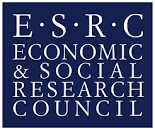Paz Alto Cauca: Peacebuilding in northern Cauca, Colombia
Funding Organisation/Programme: ESRC/Colciencias
Principal Investigator: Dr Krisna Ruette-Orihuela, UCD Asst. Prof. since 2021 , UCD School of Social Policy, Social Work and Social Justice with Co-Investigators, Professor Katherine Gough, Loughborough University, UK and Prof. Irene Velez-Torres (PI) Universidad del Valle, Cali Colombia
Background
After decades of armed conflict and violence, in 2016 the Colombian Government and the Revolutionary Armed Forces of Colombia - People's Army (FARC–EP) signed a Peace Agreement. The structural causes of violence in Colombia, including unequal access to land and the exclusion of broad sectors of the population from central decision-making and state services, were explicitly recognized. With the aim of creating a legitimate social contract between the government and the rural population, a territorial approach was adopted, which recognizes that peace can best be achieved through the active participation of citizens. The Agreement promised to build peace by implementing comprehensive rural reform through Development Plans with a Territorial Focus (PDET), and a National Programme for the Substitution of Illicit Crops (PNIS). The intention was that PDET and PNIS should be formulated and implemented through a participatory planning process, which considered the voices of local communities living in areas particularly affected by the armed conflict.
Aims and Objectives
This project aimed to strengthen the capacity of local communities in three ‘post-conflict’ zones in northern Cauca, Colombia to successfully plan and develop their land and livelihoods in accordance with the Peace Agreement.
Methodology
The project Paz Alto Cauca was co-designed with inhabitants of three ethnically and culturally diverse municipalities - Corinto, Miranda and Buenos Aires - in northern Cauca to investigate their expectations and experiences of the Peace Agreement. These municipalities were selected because they are three of the 170 locations long shaped by violence that are taking part in the PDET planning process that have been prioritized for the implementation of the agreement.
An interdisciplinary team of researchers from Colombia and the UK ran a ‘Diploma in Territorial Planning’ through which 90 indigenous, peasant, Afro-descendant and ex-combatant participants gained new knowledge and built social relationships to strengthen collaborative action on territorial peace. The Diploma was also a formative experience for the researchers, with whom the communities shared their locally grounded knowledge and experience.
Workshops were held in the municipalities to discover the priorities of communities and the challenges they face, as well as their relationship with the state in the context of peacebuilding. Interviews were also conducted with public officials at national and regional levels.
Key findings
- Although the Colombian Peace Agreement is generally portrayed as a successful example of bottom-up peacebuilding, due to the participatory mechanisms built into its design and implementation, key political issues and actors were excluded from the process.
- The participation of rural communities in PDET and PNIS planning succeeded in legitimizing the peace process but has not challenged pre-existing power structures of exploitation, instigated relevant agrarian changes, nor prevented the persistent violence. There are several reasons for this: there were constraints on which issues could be discussed during the planning exercises - in many cases, land redistribution was excluded from the talks; the budget and implementation process of local and regional plans was unclear; coordination with local elected authorities was insufficient; and communication about the progress of the plans was inadequate.
- The election of President Iván Duque in 2018 further destabilised the peace process and contributed to closing the remaining avenues for progressive change. Shortly after his election, Duque launched a new policy, ‘Peace with legality’, which ostensibly restated the government’s commitment to peace but shifted the focus to a militarization of security and stabilization, leaving aside the transformative promises initially contained in the peace accord.
-
Public investments in the PDET areas have been slow and modest, with funding earmarked for peace-related activities often going to non-PDET areas and military investments defined as crucial for securitization. The government has stated that it is committed to implementing the PDETs, however, it is doing so selectively and imposing its own priorities on communities in a top-down manner. Consequently, participation in territorial peace has reinforced state legitimacy and advanced state-led neoliberalism but has not improved conditions for rural communities in northern Cauca.
For futher information go to the Project website: (opens in a new window)http://pazaltocauca.net/ Publications Gough, K Velez-Torres, Ruette-Orihuela. K, et al. 2022.
Engaged pedagogic research: Transforming societies through co-learning and social action. Environment and Planning C: Politics and Space. 1-21.
Escobar-Tello, C., Ruette-Orihuela, K., Gogh, K.V., Fayad, J., and Vélez-Torres, I. 2021. Decolonising design in peacebuilding contexts, Design Studies, 73: 101001
Piccolino, G. and Ruette-Orihuela, K. 2021. The turn from peacebuilding to stabilization: the case of Colombia after the 2018 presidential election, Third World Quarterly
Vélez‐Torres, I., Gough, K., Larrea‐Mejía, J., Piccolino, G., and Ruette‐Orihuela, K. 2021. “Fests of Vests”: The Politics of Participation in Neoliberal Peacebuilding in Colombia. Antipode
Additionally please contact Dr Krisna Ruette-Orihuela. Email: (opens in a new window)krisna.ruette-orihuela@ucd.ie
